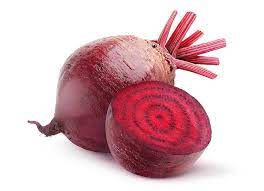Beetroot, scientifically known as Beta vulgaris, is a popular vegetable that has been grown and consumed for centuries. In recent times, there has been an increasing interest in the nutritional benefits of beetroot due to its high content of vitamins, minerals, and antioxidants. This article aims to provide a comprehensive guide to the nutritional benefits, cultivation, and potential health benefits of beetroot.
According to the United States Department of Agriculture (USDA), beetroot is a good source of several nutrients, including vitamin C, folate, potassium, and manganese. One cup of raw beetroot contains approximately 58 calories, 13 grams of carbohydrates, and 4 grams of fiber. Beetroot is also rich in nitrates, which have been shown to have positive effects on blood pressure and cardiovascular health.
In addition to its nutritional benefits, beetroot has been used in traditional medicine to treat a variety of conditions, including anemia, constipation, and indigestion. More recently, studies have suggested that beetroot may also have anti-inflammatory and anti-cancer properties, although further research is needed to confirm these potential health benefits.
When it comes to cultivation, beetroot is a hardy and easy-to-grow crop that is suitable for a wide range of climates. It can be grown in both soil and hydroponic systems, making it a versatile crop for farmers and home gardeners alike.
In conclusion, beetroot is a highly nutritious vegetable that offers a wide range of potential health benefits. Its versatility in cultivation and preparation makes it an excellent choice for farmers and home gardeners looking to incorporate more nutrient-rich vegetables into their diets.
#beetroot #nutrition #health #farming #agriculture #vegetables #antioxidants #nitrates #vitamins #minerals #cultivation












